US-based Nigerian professionals – Columbia’s Africa Business Club, Black Law Students Association and Naija We Can – on Sunday September 4, 2022, held a conversation with former Anambra State governor Peter Obi on Afro Economics & Government Policy. Prime Business Africa’s special Correspondent in New York presents 23 questions and answers coming out of the conversation.
Personal Story and Background
Join our WhatsApp Channel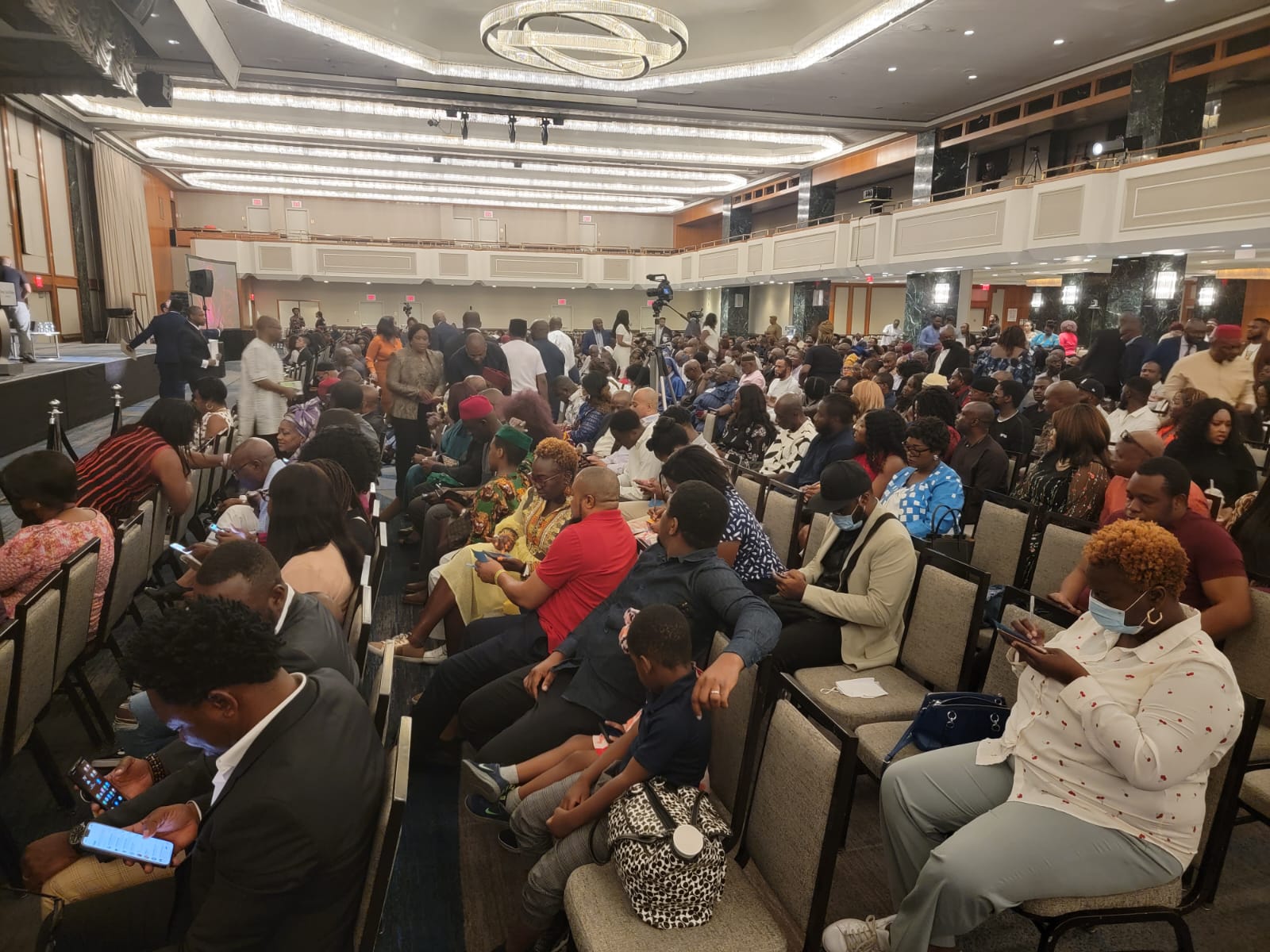
BLACK LAW STUDENTS ASSOCIATION: To start us off, it would be great if you can briefly talk about your family and childhood. What values did your family instill in you, were there defining points in your childhood/family background that helped guide your interests in community and politics?
As most of you have heard me say, I was primarily a trader; before becoming a businessman and a politician. I understand cost-benefit analysis. I am frugal but not stingy; even as they claim that “we no dey give shishi. I hate wastage; and I believe that you have to speculate in order to accumulate. That is who I am.
READ ALSO: Peter Obi In Atlanta – 30 Takeaways In This Night To Remember
My upbringing is based on solid family values grounded on Christian Catholic education and values. I went to a legacy school, Christ the King College, Onitsha, which placed high value on leadership training. That 89-year old school has produced men in lofty leadership positions; like Supreme Court Judges Chike Idigbe, Chukwudifu Oputa, Anthony Anigolu, and Anthony Iguh. It has produced several eminent clergymen, senators, military generals, captains of industry and three governors, including yours truly.
The motto of the college – Bonitas, Disciplina, and Scientia – has remained for us its alumni, an overarching guide and beacon. My educative process has seen me through the portals of renowned academic institutions and various leadership programmes.
READ ALSO: (Video) Phyno, Flavour Meet Peter Obi At Washington Economic Roundtable
AFRICA BUSINESS CLUB: Whether they are studying business or law, many of the students in attendance are considering a career in politics; what would be your most significant piece of advice for these students? Looking back, what is something you wish you knew when you transitioned from business to politics and government?
I have offered a brief backgrounder, to give an insight as to why I am in politics. My advice: If you cannot add value to public service, don’t get involved. As a businessman, I understood cost-benefit analysis and profit making; what I did not know was how transactional governance could be.
BLACK LAW STUDENTS ASSOCIATION: It took nearly three years of intense legal battle to fully recognize your election as governor. I imagine the time from 2003-2006 when you took office took a tremendous amount of patience. Can you describe to the audience what that time was like? What were the conversations like with your attorneys? What were some of the behind-the scenes challenges with your legal battle?
It was extremely difficult ad lonely period. I felt abandoned. Some questioned my mindset. In the end, I learned a lesson I resiliency.
Education
AFRICA BUSINESS CLUB: Nigeria is under investing in education. As of August 2022, federal universities have been on strike for 6+ months and our government spending on education as a percentage of total government spending in 2021 was 5%, compared to the global average of 14%. Education was one of your areas of success in Anambra state–what needs to be done on a national level to make us globally competitive?
We will pursue the global best practices and standards within available resource. Certainly, in the medium and long term, 14% budgetary funding for education is within the realm of possibility.
We will strive to be globally competitive by increasing funding ad ensuring that the (TETFund) resources are re-directed to funding of the Universities and other higher institutions robustly with a view to ending the perennial shrikes by University Staff and workers.
BLACK LAW STUDENTS ASSOCIATION: The U.N Children’s fund has reported that nearly 18 million school-aged children in Nigeria are not in school and that most of these students are girls. Given the utmost importance of education, what will you do to decrease the number of school-aged children who are not in school or who are not regularly attending school?
We are challenged by high youth unemployment, which stands at 33.3%; 54% for the youth; and 20 million out-of-school-children. We must give this country back to the Nigerian youths.
Half of our 200 million people are below the age of 30. The median age of this country stands at 17.9, showing that Nigeria has the incredible potentials to develop, if she harnesses the demographic dividends intelligently. Harnessing our national youth strength must start with curbing the high youth unemployment and creating funding access to enable our youths become entrepreneurs and drivers of our Small and Medium Scale enterprises(SMEs). We must fund education more robustly, by tweaking the UBEC and TETFund.
AFRICA BUSINESS CLUB: Fundamentally, for young Nigerians, we feel that we have been dealt the worst hand. There is a deep fear that our country will descend into chaos, a justified anger that our protests fall on deaf ears, and for those abroad, the pressing desire to return to a safe and functional country, what do you say to these emotions of 200+ million people?
I will say that while Nigeria’s situation is critical; it is not yet hopeless. That might be a cliché, but that is the reality. As I have always said, in the mission to rescue Nigeria, there is no tribe, religion, or class. Indeed, there can be no conscientious objector.
On Economy
BLACK LAW STUDENTS ASSOCIATION: In your view, what is the most effective path forward for reducing poverty in Nigeria and mitigating ongoing regional inequalities? A lot has been made of the role the oil and gas industry play in driving the Nigerian economy. Can you speak to efforts to diversify into tech and other non-oil sectors?
Economics is driven y the laws of efficiency. We must return to the path of production that results in production and wealth creation, and eventually results in massive employment and poverty alleviation.
As a nation, we must look beyond oil. Whatever oil we have will be refined domestically. We will look to solar and other clean energy, especially gas. We have over 84 million hectares of arable land. Barely 40% of this arable land is cultivated today. Nigeria’s arable land is her new oil and gold. We will put our land to work for us. We will grow excess grains and use that for clean energy.
AFRICA BUSINESS CLUB: You have mentioned that Nigeria is not a production country, and there is the need for us to move from consumption to production in other areas. What should we be producing and what approach would be taken to drive this diversification, specifically attracting youths to these areas?
I am an avid proponent of agriculture, especially as we have so much arable land in Nigeria. In fact, Africa as a whole has 65% of arable land. So, there are lots of economic opportunities in agriculture. There is an innovative project which the African Development Bank has spearheaded called Special Agricultural Processing Zones. The ADB is supporting African countries, including Nigeria, to roll out these zones. They are game changers for Nigerian agriculture
AFRICA BUSINESS CLUB: Nigerian startups attract the highest investor funding in Africa, raising over $1billion in 2021. However, according to the Lagos Chamber of Commerce and Industry, Nigeria is one of the most hostile business environments in the world, largely due to regulatory and infrastructure challenges. Our businesses are surviving despite the environment, instead of thriving because of it. What meaningful regulatory changes do you believe will improve our business environment?
Young Nigerians are taking the Fintech industry by storm. Just three companies alone run by young Nigerians—Inter Switch, Paystack and Flutterwave—are each valued at over US$1 billion. Flutterwave, on its own, was recently valued at US$3 billion. We will create an enabling environment for our startups to thrive. Beyond creating access to easy funding, we will enforce the legal framework protecting foreign investors and their indigenous partners. This is the only way to improve our business environment and tamper capital flight.
BLACK LAW STUDENTS ASSOCIATION: By July 2022, inflation in Nigeria had risen to 18.6%, its highest level over the last five years, creating downward pressure on our economy. Which specific policies do you believe would be effective in curbing inflation long-term?
We will stop borrowing for consumption. All loans must be invested in regenerative projects. Inflation is a factor of spending on goods and services outstripping production. Since we have not resolved the minimum wage issue, we will not use wage and price controls to fight inflation. Rather, we will pursue a contractionary monetary policy. We will mop up excess liquidity by reducing the money supply within an economy.
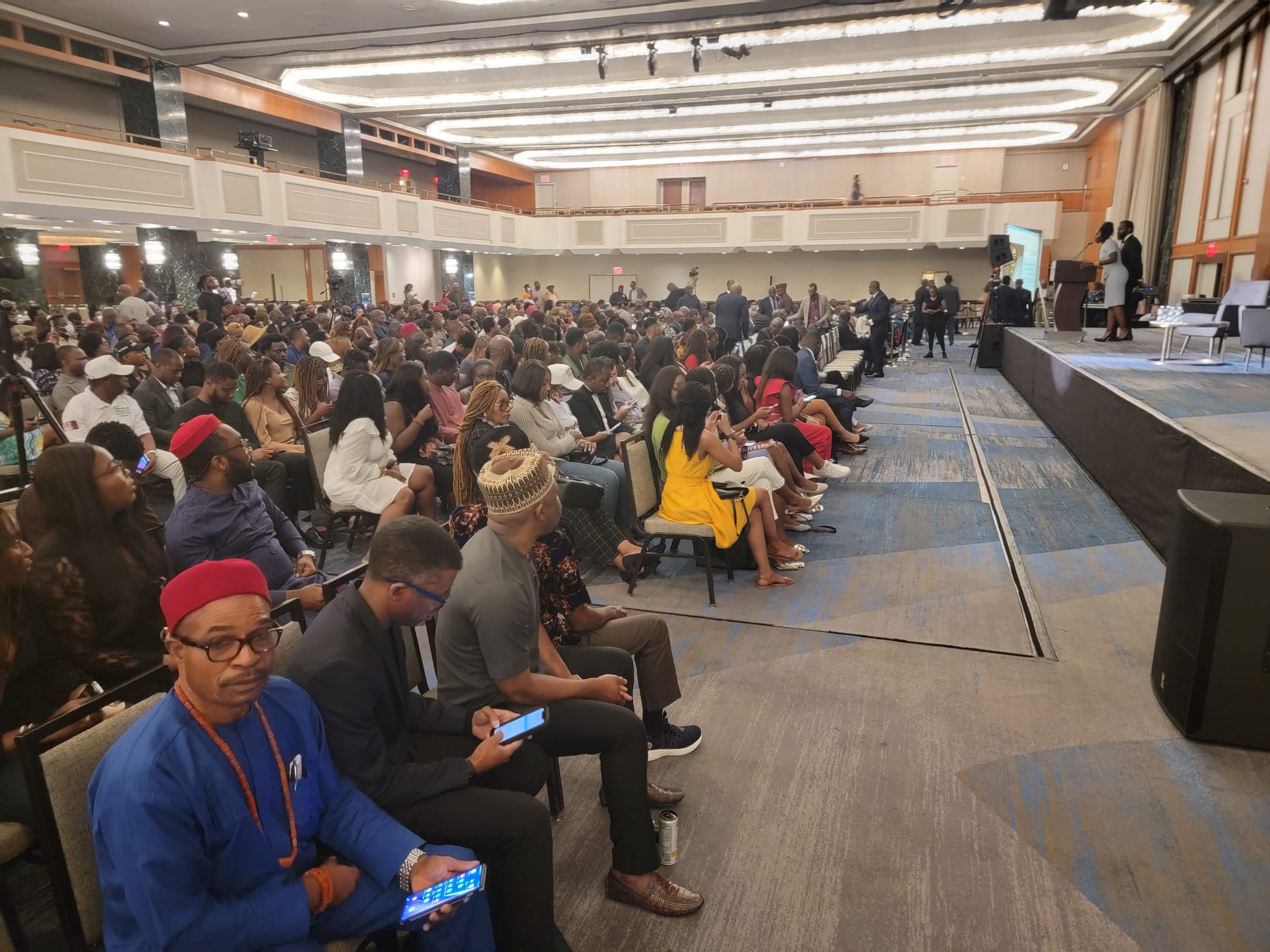
BLACK LAW STUDENTS ASSOCIATION: The Nigerian Naira has been on a steady decline for the past few years, with an increasingly dollarized economy. In the past few weeks, there have also been news reports around the potential devaluation of the Naira. What, if anything, would be effective in stabilizing the Naira?
The truth is that for long market forces have not determined the exchange rate of the Naira. The two tier foreign exchange regime is a fluke. It has to end. Let the exchange rate be determined by the forces of demand and supply. It is that simple.
AFRICA BUSINESS CLUB: According to the Nigerian Bureau of Statistics, as of Q4 2020, 33.3% of Nigerians (roughly 23.2 million people) are unemployed. In any country, this would be a cause for alarm–for us, coupled with the rates of terrorism and banditry–there is fire on the mountain. What must be done to raise employment rates in the country?
Government must continue to collaborate with the organized private sector in this regard. Creating the enabling environment for raising employment must start with expanding the SMEs cluster via unfettered access to funding.
BLACK LAW STUDENTS ASSOCIATION: As you know, with $20 billion annually in remittances from members of the diaspora back to family in Nigeria, Nigeria ranks 6th in the world. In your view, are there economic risks to having such a large portion of GDP tied to remittances?
I see no risks. Naturally we should be predicating our IGR on taxation. With $20 billion in remittances in 2021, Nigeria ranks 6th behind the top five recipient countries. Expert assessments indicate that with proper policy and planning, we can leapfrog to about $60b in remittances annually. That will translate to about 14% of our total GDP. I see Diaspora remittances as the new normal and becoming Nigeria’s Official Development Assistance (ODA); some kind of foreign loan-without interest.
BLACK LAW STUDENTS ASSOCIATION: We’ve talked a lot about foreign investment from members of the Nigerian diaspora. What do you make of China’s increased involvement/investment on the continent?
Beneficiaries of China’s goodwill and investments in Africa are many. So too are the countries defaulting on their Chinese loans. The trend is deeply alarming. Salutary, as it may seem, we must approach such engagement with our national interest uppermost in our minds.
AFRICA BUSINESS CLUB: At the end of your tenure as Governor of Anambra State, the state was in budget surplus, rated by the Nigerian senate as the most financially stable state in the republic, and had education success rates skyrocket. These achievements are impressive and your run for President could be imagined as aiming to recreate this history at scale. What is the starting point?
First, we must begin with the restoration of lost faith and trust in government, by pursuing those intangible elements of national power, such as national morale, the quality of government, political will and character, as well as others, namely, security, law and order and good governance. We must ensure that we have these assets in place.
Second, we must unite and secure Nigeria; our vision and mission is to give full expression to our democracy by moving our country from consumption to production. We shall achieve this by giving primacy to implementing the 17 Sustainable Development Goals (SDGs).We will transform the economy to make it more productive, by creating employment and prosperity for millions of youths, reducing poverty in the land, and raising internally generated revenue.
Third, we will cut the cost of government and balance the budget. We will focus and fund human development capital sectors such as education and health, robustly.
Fourth, we will strive to recover all ungoverned spaces in Nigeria while addressing issues of criminality and insecurity.
Government Policy
BLACK LAW STUDENTS ASSOCIATION: During the Nigerian civil war, the administration’s mantra for prosecuting the war was “to keep Nigeria one is a task that must be done.” With a host of languages/religions represented, hundreds of ethnic groups, and economic growth concentrated in the south, what role do you envision playing to ensure that Nigeria remains one?
We will seek to reunite Nigeria through strict adherence to Constitutional provisions on equitable representation in Federal establishments of our national diversity, especially, women, youths and people with disability.
Constitutional review is a process; it is not a one off event. Any review of the Constitution will entail legislative, executive and judicial actions. Ultimately the Nigerian people will decide.
Good governance simply translates to eight critical governance values and an unfettered commitment to upholding them. These are a leadership or government being: Accountable, Transparent, Responsive, Equitable and Inclusive, Effective and Efficient, Follows the rule of law, participatory and consensus oriented.
AFRICA BUSINESS CLUB: A quote from the Council of Foreign Relations says: “For now, the moral compact of Nigerian corruption subsists as follows: government pretends to fight corruption; Nigerians pretend to take government seriously.” In a country so mired in graft and corruption at what feels like every level, how do you plan to bring an end to corruption?
There is corruption is Nigeria; but we must avoid the collective criminalization of an entire country. We will have zero tolerance for corruption; block leakages and cut the cost of governance. We must also fight greed and impunity that breeds corruption. Our total commitment to rule of law, due process, transparency and accountability in government business will be instrumental to achieving limited to zero corruption.
AFRICA BUSINESS CLUB: In interviews, you seem to be a big advocate of federalism–encouraging state run police, state schools etc. With such a diverse country with massive regional gaps in education, employment rates, and social equalities, how do you ensure that federalism begins to have a net positive impact on certain portions of the population? How would the federal government potentially ensure nation-building and better hold states accountable in this set-up?
What we have now is fiscal federalism. In a true federalism, the three tiers of government, the so-called federating units, will function in tandem with constitutional dictates. Each should generate its own resources, run its own schools and be responsible for their own security. We are not there yet. Yet, we have an empirical basis by which we can ensure a net positive impact on certain portions of the population.
In Anambra State, the much we achieved was possible because we used the Millennium Development Goals (MDGs) as our governance benchmark and parameter. This ensured simultaneous development of the 21 local governments and the 177 communities. In the present instance, we intend to deploy the 17 Sustainable Development Goals (SDGs) in a similar manner. No state or any of the 774 local government areas will be left behind.
If federal resources are shared equitably, state accountability becomes almost unnecessary; each state will be as viable as they are able to muster niche sectors in which they enjoy comparative advantage. Such a situation will also compel states to either prioritize projects and programmes or embark on bilateral or regional joint-ventures, which rarely happens own.
BLACK LAW STUDENTS ASSOCIATION: A critical part of democracy is that it is a conversation between the ruling class and the people. Many times, in our democracy, once a president is elected, the silence comes and the people get ignored. You are currently running on a largely populist campaign, if you were to become the president, how would you ensure that you are staying in conversation with the people?
What you refer to as “populist campaign” is indeed organic and a collective pushback against the absence of elite consensus on how to tackle critical national challenges. The national population, at the behest of the youths has defined the narrative for the unfolding national discourse. There has been a paradigm shift. The Youth own this process; they shaped it, and it is they who will determine the outcome.
Of that, I am convinced. Besides bad leadership, Nigeria’s greatest bane results from lack of elite consensus on critical national interest questions. It is thus my earnest hope that some redefining leadership and governance perspectives will emerge from the present groundswell of political activism. I am confident that henceforth keeping the dialogue between the leaders and the led going will be near seamless.
AFRICA BUSINESS CLUB: Women’s political participation in Nigeria is only at 6.7%, which is below global and African averages, which are both above 20%. What commitments can you make towards actively increasing female inclusion and participation across all levels of government in Nigeria?
As governor of Anambra State my administration achieved close to a 60-40 gender balance in appointive and elective positions. The national target has hovered around 30-35%. I believe we can progressively aim for between 35-40%, with aggressive gender mainstreaming action plan and rigid benchmarks.
Black Law Students Association: Among many goals, the African Union seeks to achieve greater unity, cohesion, and solidarity between African countries and African nations. What do you see as some of the biggest challenges and opportunities to achieving this solidarity through the African Union?
Post globalization, some states are becoming more insular. But Africa’s greatest gift and potentials rest on the fact that the continent it is richly endowed. We must continue to promote intra-Africa trade.
Security
AFRICA BUSINESS CLUB: The October 2020 EndSARS movement reflects Nigerians’ fear of their own police force and their demand for safety. Many would say the key issue of police brutality remains far from resolved. How would you address the concerns that brought about EndSARS and ensure a more accountable police force across the country?
First, a well trained and professional police officer will not engage police brutality. However, weak institutions tend to give rise to impunity. Police officers who abuse human rights or ordered liberties must be held accountable. We will embark on immediate and intrusive security sector reform and governance (SSRG). Relatedly, we must improve the functioning and effectiveness of the police by strengthening their civilian oversight as well as increasing their strength, materiel, financial allocation and enhanced professional training.
Secondly, our national policing strength must be relative to our national population and meet global standards. We will desist from using Nigerian military for purely civilian police duties.
Black Law Students Association: Nigeria has suffered several security challenges for over a decade, specifically from Boko Haram and separatist groups, both within and near the country. You would agree that it is impossible for the country to function without security. How would you develop and strengthen our security forces to defend Nigeria from terrorist attacks and widespread banditry?
The relevant security institutions and agencies exist. The supporting national security enabling documents and strategies also exist. The problem is with policy coherence, coordination and implementation. There is, for instance, no lead agency for counter-terrorism or counter-insurgency. That will change under my Presidency. We will tweak the security architecture, by offering each arm or agency lead in areas where they have comparative advantage.
Security will be in 4 parts: reforming the security sector, with particular emphasis on re-focusing the military on external threats and border protection and police on internal security threats and law enforcement; swift prosecution of criminals, bandits and terrorists; enhanced coordination among security agencies; and upholding the rule of law.
Infrastructure
AFRICA BUSINESS CLUB: Infrastructure is critical to our country’s development. At present, Nigeria has a 70% road infrastructure deficit, banditry on the railway network, and a consistently collapsing power grid, amongst other infrastructural failures. What are your top 3 priorities as far as infrastructure development and how do you plan to realize them?
The top three priorities are Power generation, Roads, and Heavy Haulage Railway network.
First, we will realize these by using current oil earnings to invest in critical physical and human infrastructure, while intensifying domestic resource mobilization for recurrent expenditure.
Second, we intend to lay special emphasis on critical infrastructure, especially Power, to ensure a clear measurable increase of 200% of today’s generation, transmission and distribution, within the shortest possible time through public private partnership.
Third, we shall boost economic growth and wealth creation by focusing on production in the critical sectors of manufacturing, agriculture, service and creative industries and leverage technology in support of that effort as we as work towards a results-based and balanced national budget.
Healthcare
BLACK LAW STUDENTS ASSOCIATION: By almost all measures, Nigeria has some of the worst healthcare indicators in Africa. In the past, there have been large-ticket financial commitments to hospitals, which have done nothing to improve access to healthcare to the average Nigerian, while many of our leaders engage in medical tourism abroad. How would access to healthcare and quality of healthcare improve for the average Nigerian should you become President?
Sustainability will be key; as well as robust partnership and effective synergies. Acess to affordable and qualitative healthcare will always be contingent the combination of dedicated personnel, adequate funding, and requisite delivery infrastructure, of which constant power supply is a major component. We must pay competitive wages; facilitate broad exchange programmes in the referral teaching hospital. We must maintain the nomenclature of primary health centres, general and teaching hospitals.

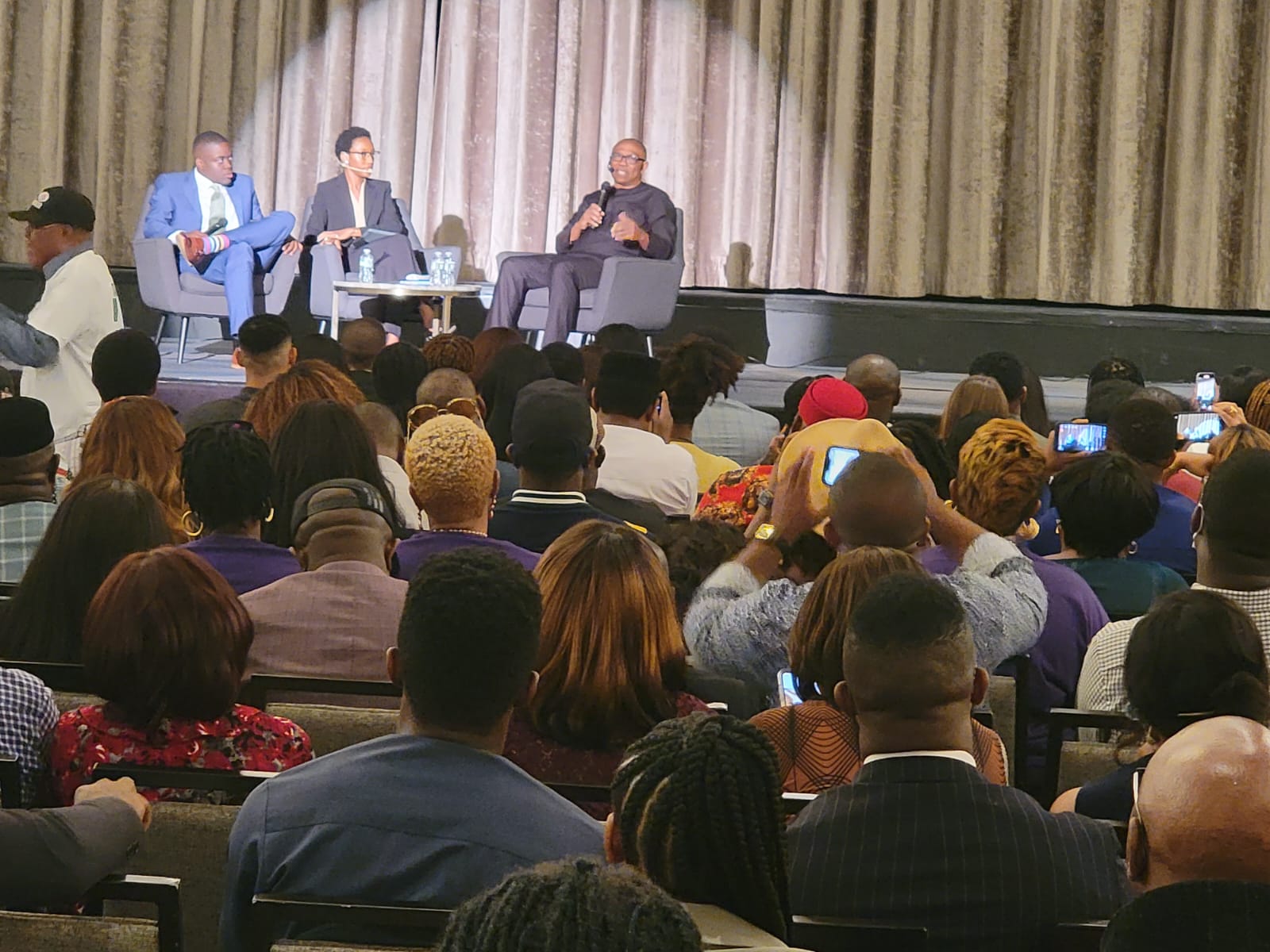


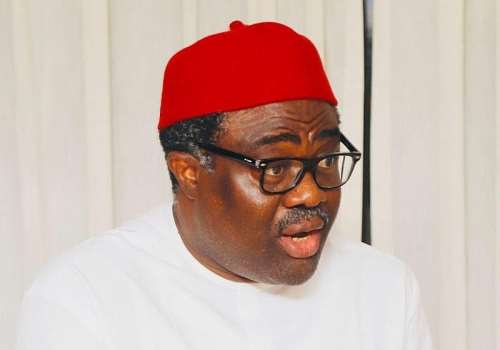

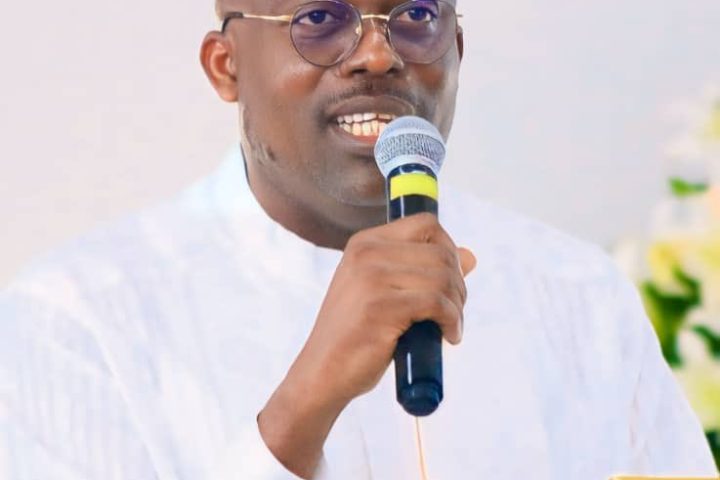





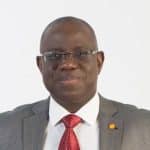
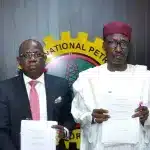

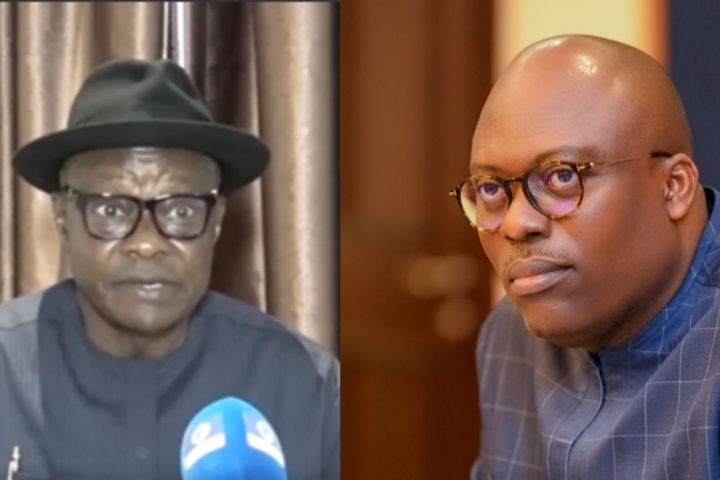
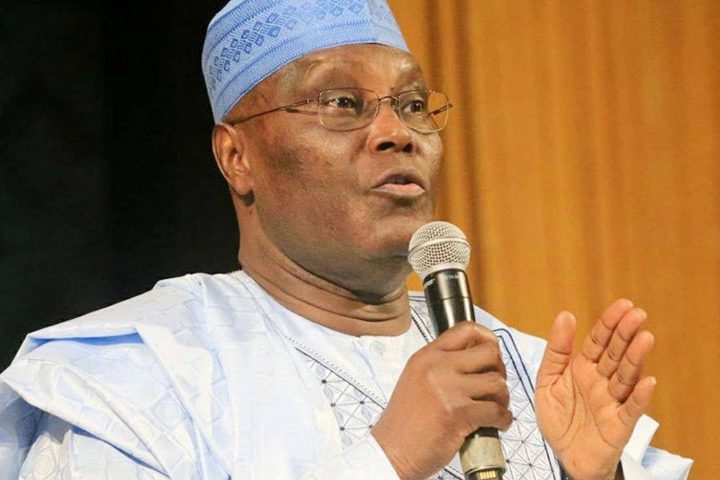
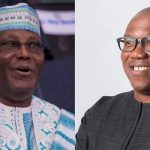
Follow Us